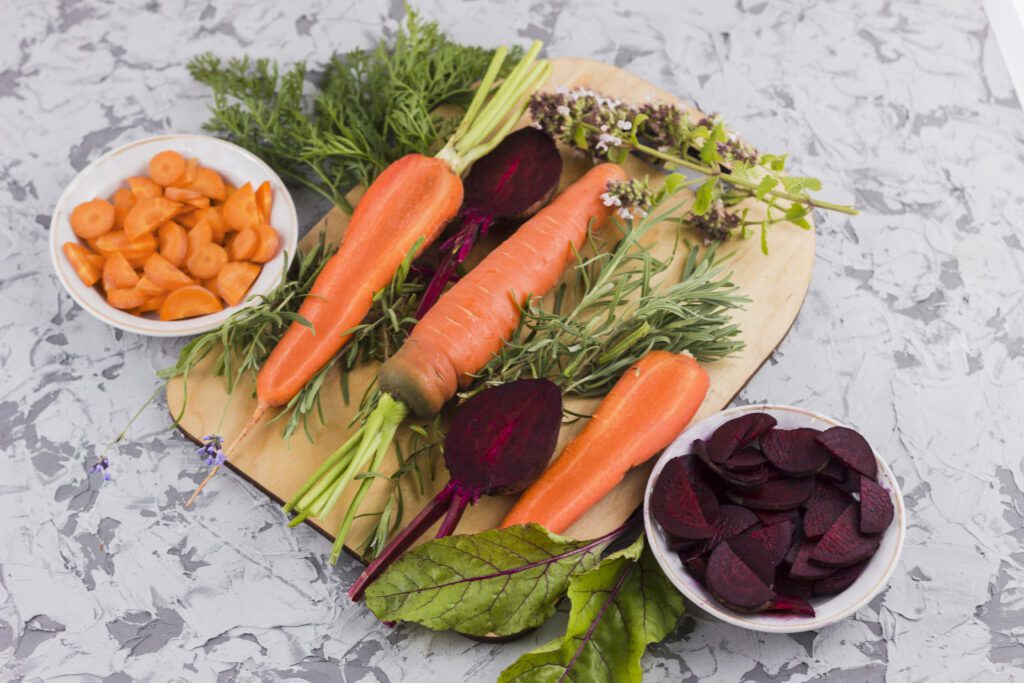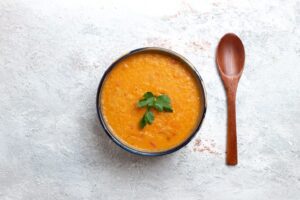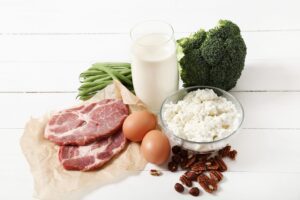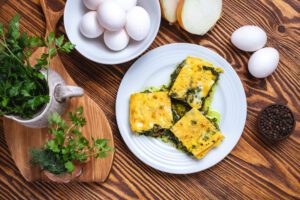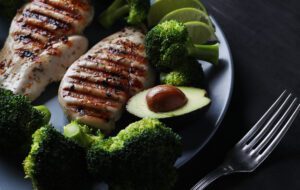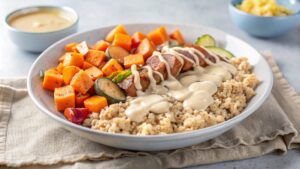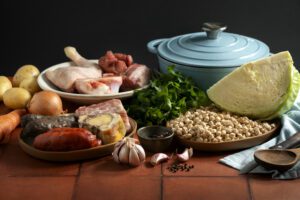Lymphoma is a cancer that affects your immune system directly. It attacks the lymphatic system part of your body’s anti-infective system. As you’re going through lymphoma treatments like chemotherapy and radiation, your immune system starts to shut down. This brings about the possibility of complications and side effects. The importance of lymphoma nutrition diet in this case is enormous.
It is your food that is keeping your body strong and your immunity healthy. If you have lymphoma, then the right food and avoiding the wrong foods will get you well fast and efficiently. You’ll find all the information about lymphoma nutrition you need in this article to be able to make the right dietary choices and get healthy.
The focus of this article is on lymphoma nutrition what to eat and what to avoid.
Table of Contents
Understanding Lymphoma Nutrition
Effects of Lymphoma on your body
Lymphoma is a condition that affects lymphocytes, the infection-fighting white blood cells. There are two major types:
You become immune-weakened in both. Your body becomes susceptible to infections and other diseases. You are affected by fatigue, weight loss, nausea, and digestive issues during treatment. All these challenges can be alleviated through proper lymphoma nutrition.
Role of lymphoma Nutrition
- Immune Support: Proper lymphoma nutrition supports the immune system and improves the ability to fight infections.
- Maintaining Energy Levels: Lymphoma and its treatments drain the body’s energy reserves. A balanced diet provides you with energy.
- Reducing Side Effects: The right foods in your lymphoma nutrition plan help control side effects such as nausea, loss of appetite, and fatigue.
The correct diet should consist of proteins, vitamins, minerals, antioxidants, and healthy fats for effective lymphoma nutrition.
Key Nutritional Needs for Lymphoma Nutrition
Specific nutrients are very helpful for lymphoma patients. Let us understand them in detail.
Proteins for Immune Support
Proteins are your body’s building blocks. They repair damaged tissues and cells and help make new immune cells. Protein deficiency can increase weakness and risk of infection.
Sources of Protein for Lymphoma Nutrition:
- Animal-Based: Chicken, fish (such as salmon and tuna), eggs.
- Plant-Based: Lentils, chickpeas, tofu, and soy products.
Daily protein intake is very important, especially if you are having chemotherapy or radiation therapy.
Vitamins and Minerals
Vitamins and minerals balance the immune system and minimize treatment side effects.
- Vitamin A: Enhances the performance of the immune cells. Sources: Carrots, sweet potatoes, spinach.
- Vitamin C: Combats infections. Sources: Citrus fruits such as oranges, kiwis, and lemons.
- Vitamin D: Helps in the maintenance of bone and immune system. Sources: Sunlight, fortified dairy products.
- Vitamin E: Stimulates free radicals. Sources: Almonds, sunflower seeds.
- Zinc & Selenium: Essential for immune function and cell damage repair. Sources: Seafood, nuts, seeds.
Antioxidants
Antioxidants kill free radicals that encourage cancer cells to expand. They also minimize chemotherapy side effects.
Rich Sources:
- Blueberries, strawberries
- Broccoli, kale
- Green tea
Hydration
Dehydration is a common problem due to chemotherapy and medications. Along with water, herbal teas, and coconut water are good options for hydration.
Best Foods for Lymphoma Nutrition

The diet should be made with foods that help with the treatment and accelerate the healing process.
1. Fresh Fruits and Vegetables
Incorporate antioxidant-rich fruits and vegetables into your lymphoma nutrition plan:
- Fruits: Berries, oranges, apples.
- Vegetables: Spinach, broccoli, carrots.
2. High-Quality Proteins
Proteins are essential for lymphoma nutrition and immune support:
- Lean meats like chicken or turkey.
- Fish like salmon or mackerel (for Omega-3 fatty acids).
- Beans and lentils are the best sources of plant-based proteins.
3. Whole Grains
Whole grains provide energy and fiber in your lymphoma nutrition:
- Brown rice
- Oats
- Quinoa
4. Probiotics
Probiotics are helpful for gut health and balance the side effects of antibiotics.
Sources:
- Yogurt, kefir
- Fermented foods like kimchi and sauerkraut.
5. Healthy Fats
Healthy fats reduce inflammation and boost immunity.
Sources:
- Olive oil
- Nuts and seeds (like flaxseeds, chia seeds)
- Avocado
6. Recommended Snacks and Meals
- Apple slices with peanut butter.
- Hummus with whole-grain crackers.
- Vegetable smoothies (spinach, kale, and berries).
Foods to Avoid
Lymphoma patients need to avoid certain foods that can make their condition worse.
1. Processed and Packaged Foods
These foods contain unhealthy preservatives and chemicals that weaken the immune system. Avoid chips, cookies, and instant noodles.
2. High Sugar Foods
Sugar increases inflammation and depresses the immune system. So it is better to stay away from sugary drinks and desserts.
3. Fried Foods
Fried and greasy foods negatively impact digestion and energy levels.
4. Alcohol
Alcohol lowers immunity and can reduce the effects of medications.
5. Raw Foods
Your immune system becomes weak during chemotherapy. Raw foods, such as unwashed fruits and unpasteurized dairy, increase the risk of infection.
Importance of Consulting with Healthcare Providers
Every patient’s cancer and treatment is unique. It is important to discuss your lymphoma nutrition plan with your oncologist and nutritionist. Your diet should be modified based on your stage of treatment and side effects.
- Custom Diet Plan: Your doctor may recommend specific foods that fit your treatment.
- Regular Monitoring: Monitoring the effects of the diet and making necessary changes is important for recovery.
Conclusion
Nutrition is a critical component of lymphoma. Diet builds the immune system, gives energy, and minimizes the side effects of treatment. The food regimen mentioned here will help you get healthy and recuperate in a better way. Remember to always ask your healthcare professional, and make the right decisions.
FAQs
Can lymphoma patients consume dairy products?
Yes, it is safe to consume low-fat and pasteurized dairy products. Avoid high-fat dairy products.
Is it necessary to take supplements?
If your diet is lacking in nutrients, supplements may be necessary. Do not take them without your doctor’s advice.
Is hydration important for lymphoma patients?
Absolutely! Hydration helps in digestion and flushing out toxins.
Should strict diets like keto or vegan be followed?
Avoid strict diets. Give preference to a balanced and nutrient-rich diet.
How to manage nausea and appetite loss during chemotherapy?
Eat small and frequent meals. Soft and easy-to-digest foods like soups and smoothies are helpful.

